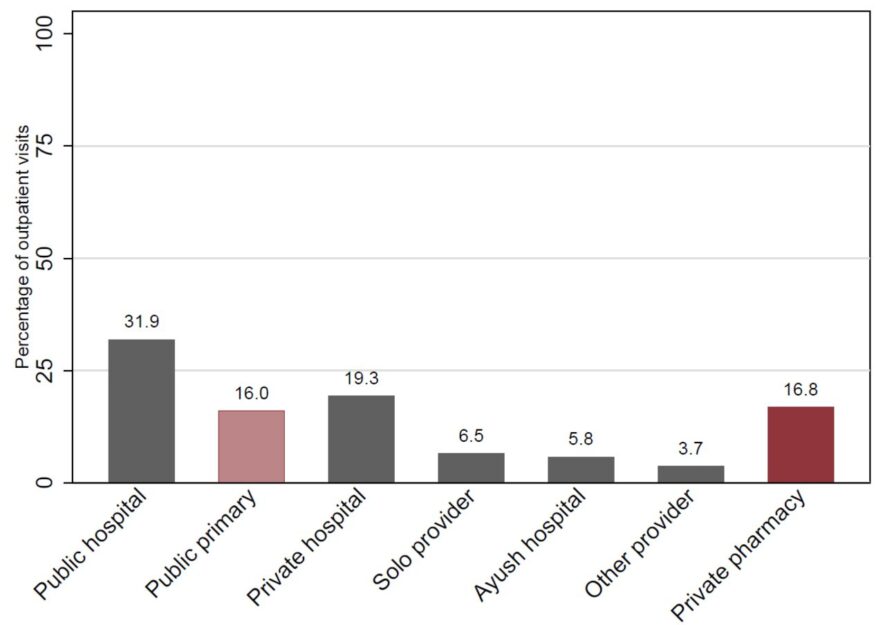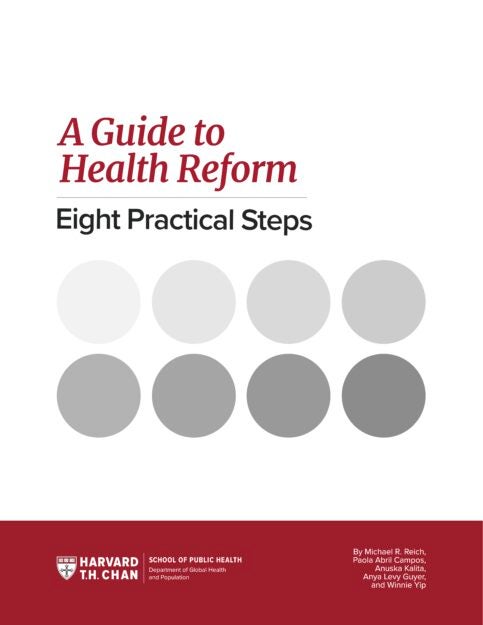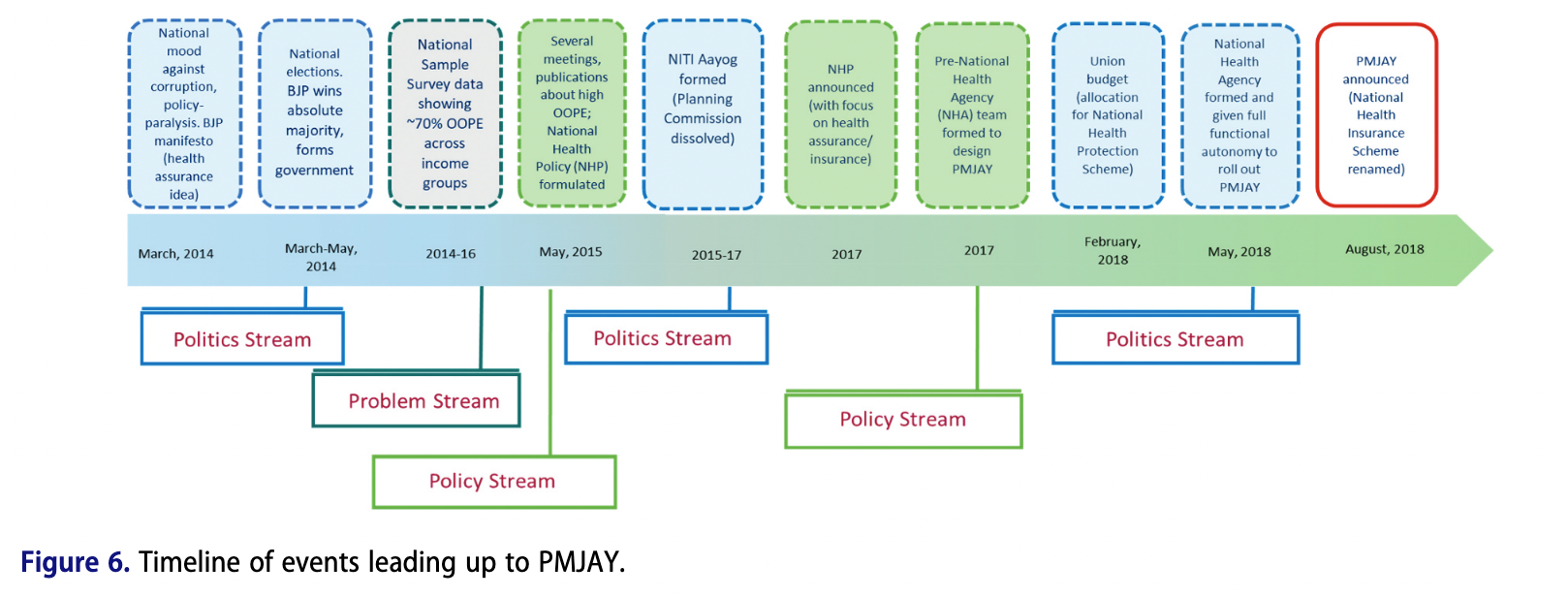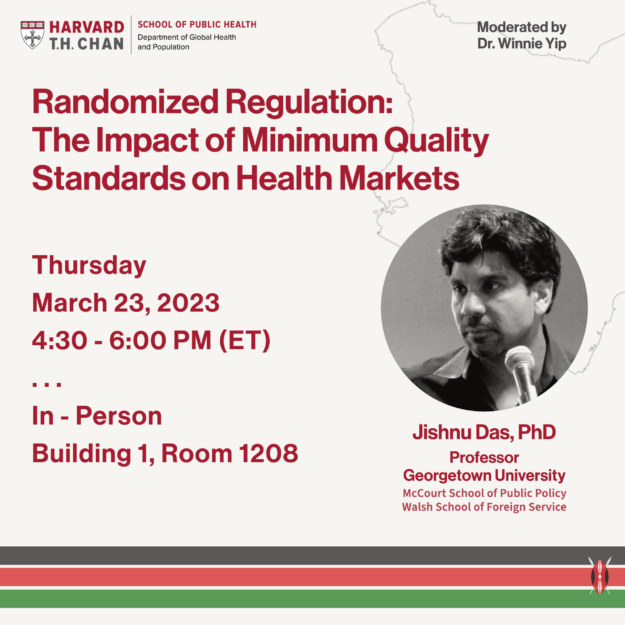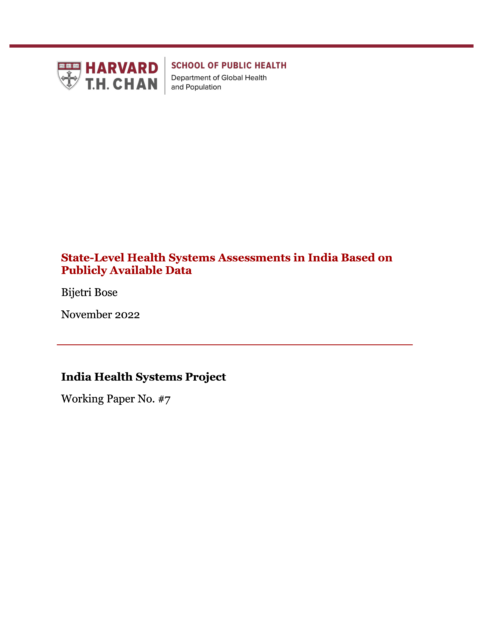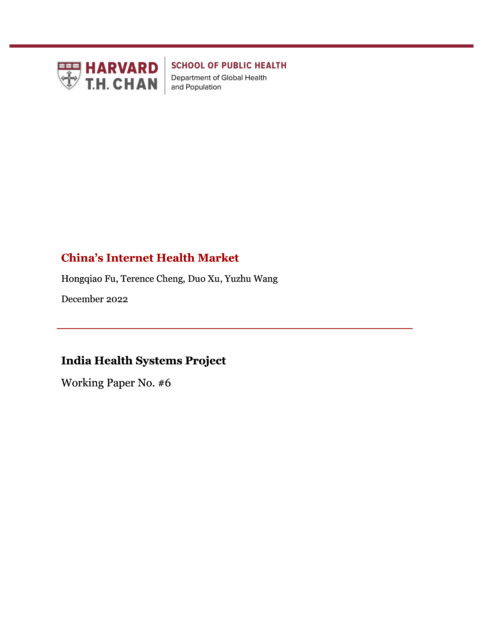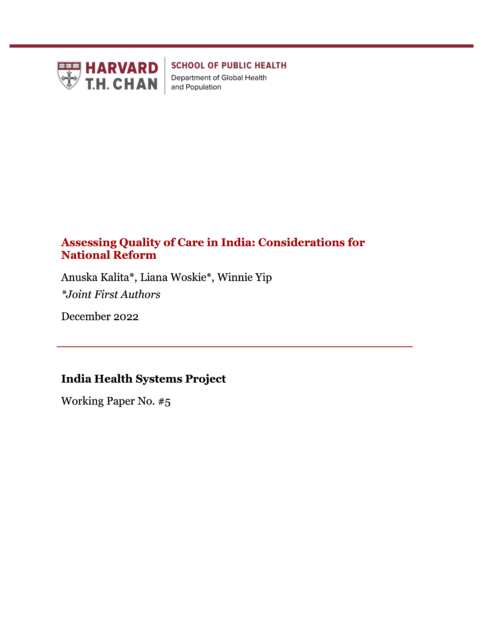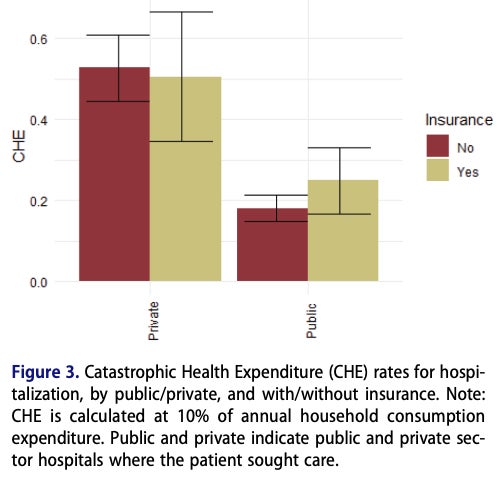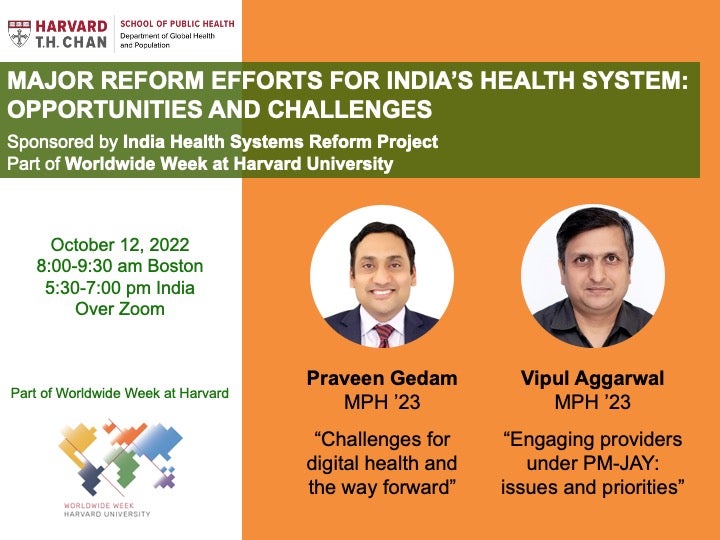Introduction In India, as in many low-income and middle-income countries, the private sector provides a large share of health care. Pharmacies represent a major share of private care, yet there are few studies on their role as healthcare providers. Our study examines: (1) What are the characteristics of and services provided by private pharmacies and how do these compare with other outpatient care providers? (2) What are the characteristics of…
Working Paper 8: A Guide to Health Reform: Eight Practical Steps
A Guide to Health Reform: Eight Practical Steps By Michael R. Reich, Paola Abril Campos, Anuska Kalita, Anya Levy Guyer, and Winnie Yip August 2023 A Guide to Health Reform: Eight Practical Steps instructs readers on how to navigate the complex challenges of doing health system reform. The Guide builds on the 2004 book Getting Health Reform Right: A Guide to Improving Performance and Equity (GHRR), which presents a framework…
Continue reading “Working Paper 8: A Guide to Health Reform: Eight Practical Steps”
Publication: The Politics of Health Policy Agenda Setting in India: The Case of the PMJAY Program
Abstract In 2018, India’s Prime Minister announced a new health insurance program, Pradhan Mantri Jan Arogya Yojana (PMJAY), aiming to cover over 500 million people. This paper seeks to document and explain the emergence of PMJAY on India’s political and policy agendas. We analyze media, election manifestos, legislative debates, and health budgets to compare PMJAY’s presence on India’s policy agenda to previous health programs. We then apply Kingdon’s Multiple Streams…
Dr. Jishnu Das — Randomized Regulation in the Health Sector
“Randomized Regulation: The Impact of Minimum Quality Standards on Health Markets” Join us for a seminar featuring Dr. Jishnu Das, Professor at the McCourt School of Public Policy and the Walsh School of Foreign Service at Georgetown University. Moderated by Dr. Winnie Yip, Professor of Global Health Policy and Economics, Harvard T.H. Chan School of Public Health. Thursday, March 23 4:30 – 6:00 PM (ET) In – Person Building 1,…
Continue reading “Dr. Jishnu Das — Randomized Regulation in the Health Sector”
Working Paper 7: State-Level Health Systems Assessments in India Based on Publicly Available Data
State-Level Health Systems Assessments in India Based on Publicly Available Data By Bijetri Bose November 2022 India has engaged in several healthcare reforms at the national and state levels since the 2000s and has experienced significant improvements in many health outcomes of its people. Yet, the nation continues to face challenges in its health system that impedes the progress toward universal health coverage where all people have access to good…
Working Paper 6: China’s Internet Health Market
China’s Internet Health Market By Hongqiao Fu, Terence Cheng, Duo Xu, and Yuzhu Wang December 2022 China serves as a model for developing an online healthcare industry. From 2013 to 2019, the total value of China’s internet healthcare market grew from 4.5 billion CNY to 37.9 billion CNY. In November 2020, there were 54.8 million active users of internet health care, up from 46.9 million in November 2019 before the…
Continue reading “Working Paper 6: China’s Internet Health Market”
Working Paper 5: Assessing Quality of Care in India: Considerations for National Reform
Assessing Quality of Care in India: Considerations for National Reform By Anuska Kalita*, Liana Woskie*, and Winnie Yip *Joint First Authors December 2022 Even as the availability and affordability of healthcare improve, many countries are not experiencing anticipated gains in health outcomes. One potential driver for stagnating health outcomes is low-quality health services. For example, between 5.7 and 8.4 million deaths are estimated to result from poor-quality healthcare each year…
Publication: Comprehensive Assessment of Health System Performance in Odisha, India
India has recently implemented several major health care reforms at national and state levels, yet the nation continues to face significant challenges in achieving better health system performance. These challenges are particularly daunting in India’s poorer states, like Odisha. The first step toward overcoming these challenges is to understand their root causes. Toward this end, the Harvard T.H. Chan School of Public Health conducted a comprehensive study in Odisha based…
Webinar: Major reform efforts for India’s health system: opportunities and challenges
Overview With a population over 1.4 billion, the health system of India has challenges and opportunities on an unprecedented scale. India is making remarkable progress towards universal health coverage with its signature health insurance plan for 40 percent of its population–the largest insurance scheme in the world–as well as innovations in digital health and primary care. Join us to hear about recent advances directly from two of India’s senior civil…
Webinar: The role of private sector pharmacies in financial hardship in India: a health system analysis in the state of Odisha
Synopsis This session held on August 24, 2022 focused on a health system analysis of the causes of high catastrophic health expenditure (CHE) in the state of Odisha in India. Odisha has the second-highest rates of CHE across India, but also has a public insurance program that covers 80% of the population and widely-used public facilities where drugs are provided free-of-charge. We designed and fielded 10 innovative surveys, including surveys…
